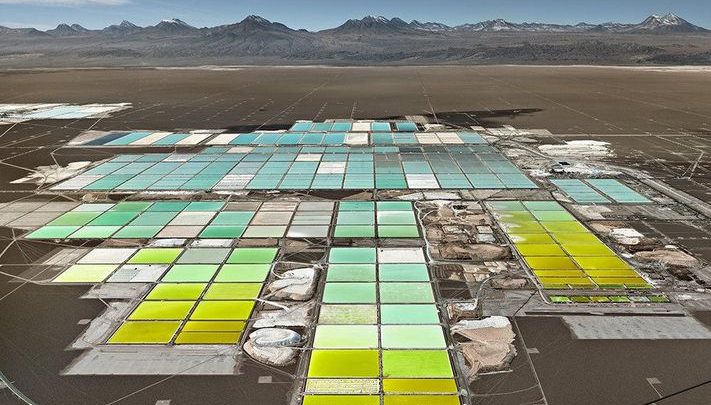Legal
We adhere to the highest standards of conduct intended to avoid even the slightest appearance of negligent, unfair or corrupt business practices, and adhere to legal and regulatory practices, both domestic and foreign, at all times.
As a global corporate citizen, we are deeply concerned about the consequences of negative climate change, and will do our part to take prudent and necessary actions that reduce Green House Gas (GHG) emissions to the atmosphere.
With global warming on the rise and many environments in a current state of crisis, there is a high demand for innovation in the energy materials sector. The US Government has placed lithium at the top of the List of Critical Minerals 2018, and it is a high priority for the Department of Defense and Department of Energy.
Over the past several thousand years, scientists calculated that the earth’s natural carbon emissions system (volcanoes) has emitted approximately 650 million tons of CO₂ per year on average. This is a combination of highly active volcanoes, seeping dormant volcanoes, and volcanic mid-ocean ridges. Last year, humans emitted 29 billion tons of CO₂ into our atmosphere.
Developing clean and renewable energy solutions is critical to avert the current rapid deterioration of our precious atmosphere due to fossil fuel and carbon emissions.

EnergyX is committed to reducing carbon emissions by half a gigaton per year. How do we do this?
We have the ability to positively affect climate change and human energy consumption on a massive scale, potentially reducing greenhouse gases every year by at least half a gigaton (about 1 percent of projected 2050 global emissions). Our GET-Lit™ technology enables exponentially more lithium output from the same quantity of source feed, at the same cost. How does generating more lithium positively affect the environment?

EnergyX provides a step change greener solution for recovering lithium.
Current brine evaporation uses 500K gallons water/ton lithium in communities already dealing with water scarcity. There is risk of toxic chemicals leaking from the evaporation ponds into the water supply or being re-injected into brine reservoirs. Meanwhile, hard-rock mining utilizes harsh chemicals to extract lithium, requiring significant site reclamation, and contaminating local water and soil.

Sustainability remains at the forefront of our efforts. The result of this breakthrough technology is a radically smaller footprint in lithium production, coupled with little to no fresh water usage, significantly lower CO₂ emissions, and zero harmful chemicals or reagents injected back into the ground. The benefits continue when the lithium is then incorporated into battery storage to advance the implementation of renewable energy.

Our mission first and foremost is to continue to develop, enhance and scale our direct lithium extraction and solid-state battery technologies.
In conjunction with this mission, we believe that by implementing meaningful and impactful ESG practices, we can increase employee morale and productivity while reducing the Company’s overall risk profile. Therefore, we take ESG factors into consideration in all applicable and appropriate aspects of our business, including our research, analysis, due diligence, experimentation, decision-making and other operations. The purpose of this ESG Policy (the “Policy”) is to institutionalize this philosophy, consistent with our values as a Company operating in the larger renewable energy sector.
Legal
We adhere to the highest standards of conduct intended to avoid even the slightest appearance of negligent, unfair or corrupt business practices, and adhere to legal and regulatory practices, both domestic and foreign, at all times.
Government
We ensure that the Company establishes and abides by corporate governance structures that provide appropriate checks and balances, including in the areas of: audit, risk management, fair and properly aligned compensation plans, and conflicts of interest.
Workplace
We ensure that the Company maintains compliance with all relevant labor laws, supports the payment of competitive wages and benefits to employees, and respects the human rights of individuals who may be directly or indirectly impacted by the Company’s investment decisions.
Safety
Ensure that the Company maintains the highest standards for the quality and safety of all products developed and sold, including in-depth training for all employees and contractors working on our projects.
Environmental
We diligently look for and assess environmental risks, to maintain high standards of environmental compliance and reporting, and in particular will seek to reduce our carbon footprint and improve our stewardship of water and other precious resources.
Community
We strive to make a positive impact on our local communities and, wherever possible, society at large, including minimizing our environmental footprint with our field operations.
Diversity, Equity and Inclusion
We strive to make recruitment and retention of employees more inclusive, including by tracking hiring and promotion statistics by gender and race/ethnicity.
Driven by a desire to implement sustainable solutions for the lithium industry that are beneficial at every level of the supply chain, EnergyX is intent on carrying out meaningful and impactful ESG practices in all applicable and appropriate aspects of its business.
One of our main objectives in terms of social responsibility is to ensure we are having a positive impact on communities surrounding our operations and build long-term relationships with them. EnergyX’s policies are based on the SDGs and follow the principles of the Paris Declaration on Aid Effectiveness (ownership, alignment, harmonization, mutual accountability, and results in management. Our procedures include creating community outreach-specific programs that address the singular needs and diversity of the different regions where EnergyX operates. In the case of Bolivia, EnergyX is implementing its community outreach policy through carefully thought-out pilot projects that were carried out through consultations with local officials in the Potosí region, assessing people’s needs through private, non-governmental, civil society, and public stakeholders.
In Bolivia, EnergyX implemented a community outreach policy through carefully thought-out pilot projects that were carried out through consultations with local officials in the Potosí region, assessing people’s needs through private, non-governmental, civil society, and public stakeholders. EnergyX has committed $50,000 to the Government of Uyuni to improve access to education for local communities.
In Chile, EnergyX is implementing its community outreach policy through carefully thought-out pilot and demonstration projects that are being carried out through consultations with local officials in the Antofagasta region, assessing indigenous people’s needs and the project’s environmental impact.